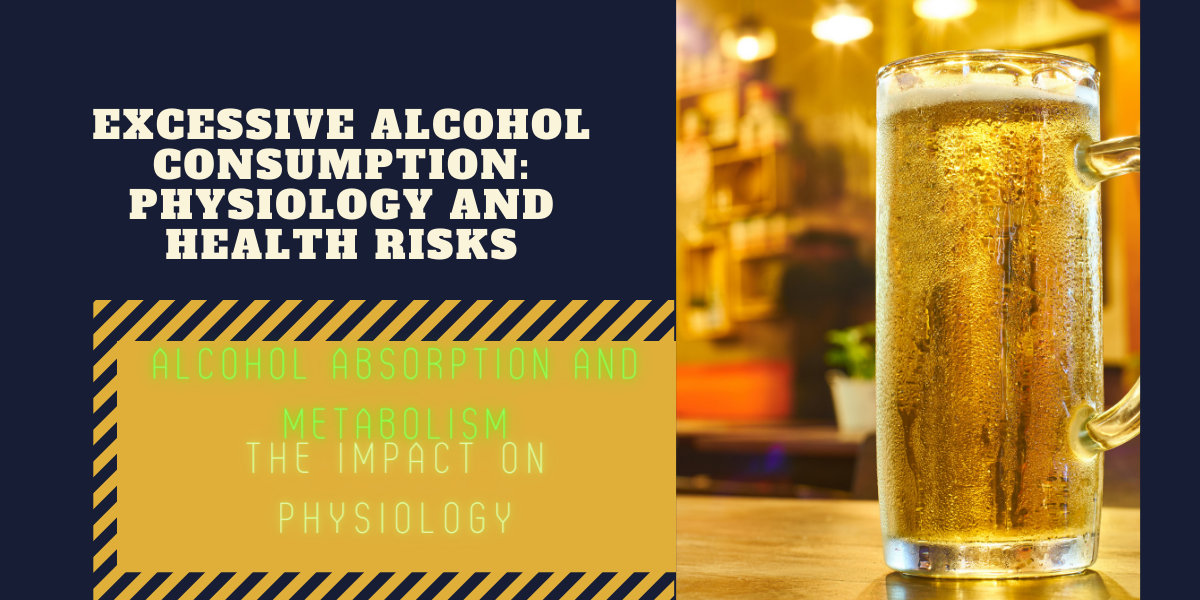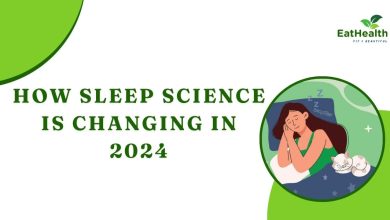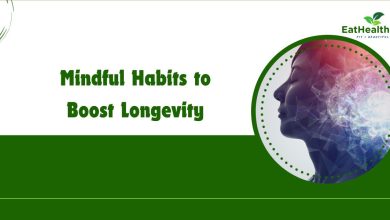Excessive Alcohol Consumption: Physiology and Health Risks
Unveiling the Effects of Excessive Alcohol Consumption: Physiology and Health Consequences
Excessive Alcohol Consumption: Physiology and Health Risks

Alcohol has been a part of human culture for centuries, used for social gatherings, relaxation, and even rituals. However, excessive alcohol consumption can have serious consequences on your physiology and overall health. In this blog post, we’ll delve into the impact of alcohol on the body, from its absorption and metabolism to the associated health risks, providing essential knowledge to make informed decisions about alcohol consumption.
Alcohol Absorption and Metabolism
When you consume alcohol, it undergoes a complex journey through your body:
- Absorption: Alcohol is primarily absorbed through the stomach and small intestine into the bloodstream. Its effects can be felt within minutes.
- Metabolism: The liver plays a central role in metabolizing alcohol. Enzymes break down alcohol into acetaldehyde, a toxic substance, and further convert it into acetate, which is less harmful.
- Blood-Alcohol Concentration (BAC): BAC measures the amount of alcohol in your bloodstream. Factors like gender, body weight, and the rate of consumption affect your BAC.
The Impact on Physiology
- Central Nervous System (CNS):
- Alcohol acts as a depressant, slowing down CNS activity. This results in impaired coordination, judgment, and reaction times.
- Liver Damage:
- Chronic alcohol consumption can lead to liver diseases, including fatty liver, alcoholic hepatitis, and cirrhosis.
- Heart Health:
- Excessive drinking can raise blood pressure, increase the risk of arrhythmias, and contribute to cardiomyopathy.
- Digestive System:
- Alcohol irritates the digestive tract, potentially causing gastritis, ulcers, and pancreatitis.
- Immune System:
- Chronic alcohol use weakens the immune system, making the body more susceptible to infections.
Health Risks of Excessive Alcohol Consumption
- Alcohol Use Disorder (AUD):
- Excessive and uncontrolled drinking can lead to AUD, a chronic disease with physical and psychological dependence on alcohol.
- Mental Health:
- Alcohol abuse is linked to mental health issues like depression, anxiety, and an increased risk of suicide.
- Cancer:
- Long-term alcohol consumption increases the risk of developing various cancers, including those of the mouth, throat, liver, and breast.
- Neurological Impairments:
- Prolonged alcohol abuse can lead to cognitive impairments, memory problems, and even Wernicke-Korsakoff syndrome.
Making Informed Choices
- Moderation:
- If you choose to drink, do so in moderation. Guidelines suggest up to one drink per day for women and two drinks per day for men.
- Seek Help:
- If you or someone you know is struggling with alcohol abuse or dependence, seek professional help and support.
- Awareness:
- Understanding the physiological effects of alcohol can empower you to make responsible choices about when and how much to drink.
Conclusion
Excessive alcohol consumption can have profound effects on physiology and health. Being aware of the journey alcohol takes through your body, its impact on various systems, and the associated health risks is crucial for making informed decisions about alcohol consumption. Prioritizing moderation and seeking support when needed can help individuals maintain a healthy relationship with alcohol and safeguard their overall well-being.




